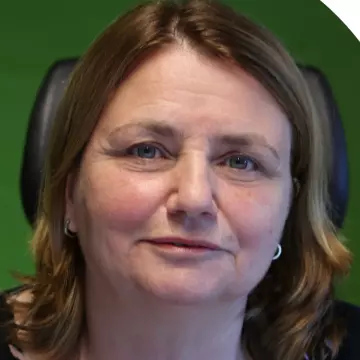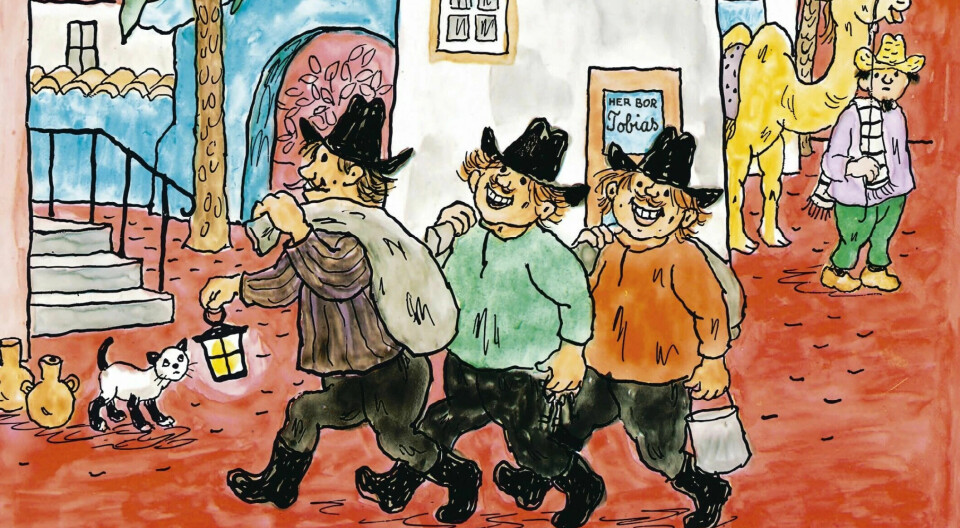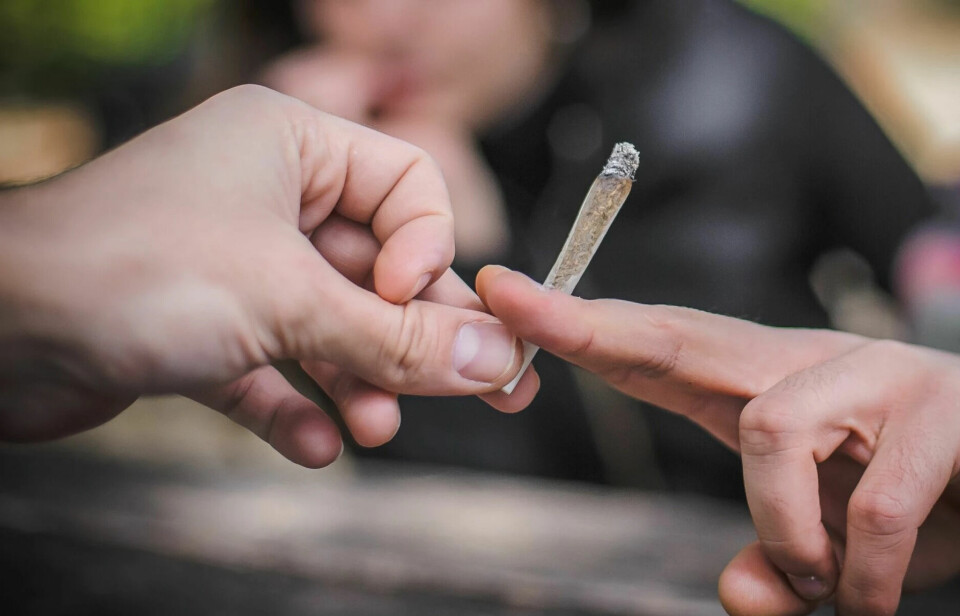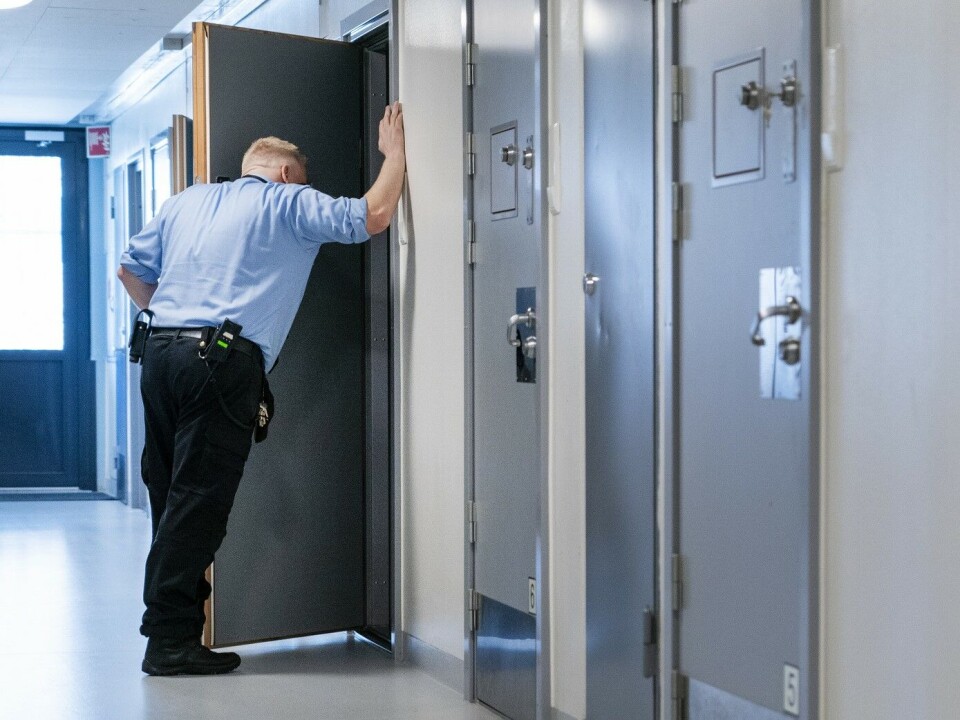
Prison officer so irritated by researchers with no experience that he pursued a doctorate himself
“It annoys me that everyone else should have a say, but not those of us who have the experience,” says the prison officer with a doctorate.
Petter is angry. He yells at the others around the table. He becomes aggressive when someone takes the last slice with toppings for the bread. He refuses to clear his dishes and food from the table.
Petter is an inmate in the prison where Olav Levin Johansen worked as a prison officer.
Johansen receives a message that the atmosphere in the wing is bad. Petter sits in the common area and scowls at everything and everyone. The other inmates have retreated to their cells.
Johansen tells Petter to come to his office. Two other prison officers are present in case there is any trouble.
Petter is told that he is being moved to a single cell unit until he has calmed down.
Then he attacks.
A scuffle ensues
Petter shoves a table towards the prison officers and raises his hand to strike.
Johansen throws himself at him. After a short scuffle, Petter is overpowered and taken to the security cell in the basement.
This story is from Olav Levin Johansen's dissertation.
He has just completed his doctorate on his own experiences as a prison guard. His study deals with the balance between helping inmates and setting boundaries for them.
Communication between staff and inmate is an important topic.
Johansen believes that better communication could have resolved the situation with Petter without the use of physical force.
Equal value, but not equal status
The inmate and the staff are not equal. One is sentenced to be there, the other must abide by the prison's rules, with safety and calm as important goals.
But respecting inmates’ equal value as human beings is still possible.
Although life in prison has strict boundaries, achieving equal relations between inmates and staff in various situations is possible, according to Johansen. Trying to understand the experiences and perspectives of others is a key element.
If Petter had been able to explain his behavior and why he was so angry, and if Johansen had been able to listen and understand, their encounter could have run a different course rather than ending in a fight.
Johansen was not able to form an equitable relationship with Peter where he could have shown responsibility for and commitment to Peter’s situation.
Things went better with another inmate.
In a dark cell
Jørgen has isolated himself in his cell. He is distraught and tired of being in prison. At the same time, he dreads his release and fears that he will return to a life of substance abuse and criminal activity, just as he did before being incarcerated.
Jørgen sits in the dark, does not go out for fresh air, and does not contact anyone.
He has not asked for help, but the prison officers are worried.
Jørgen loves to fish. He ties flies and has previously been on fishing trips with other inmates and staff. Johansen also enjoys fishing. He uses their common interest when he visits Jørgen in his cell.
The staff member and the inmate have a good conversation about fishing. Jørgen joins Johansen in the yard. Then he begins to talk about his difficulties.
Johansen emphasises that he was personal in his conversation with Jørgen, but did not share private information. He does not tell his own fishing stories, but uses his experiences to establish equality with Jørgen on a human level.
Use of force leads to acting out
“Prison officers are not there to provide therapy or to try to fix mental health problems. But a proper balance of training, setting boundaries, and conversations can contribute to better imprisonment and rehabilitation,” says Johansen.
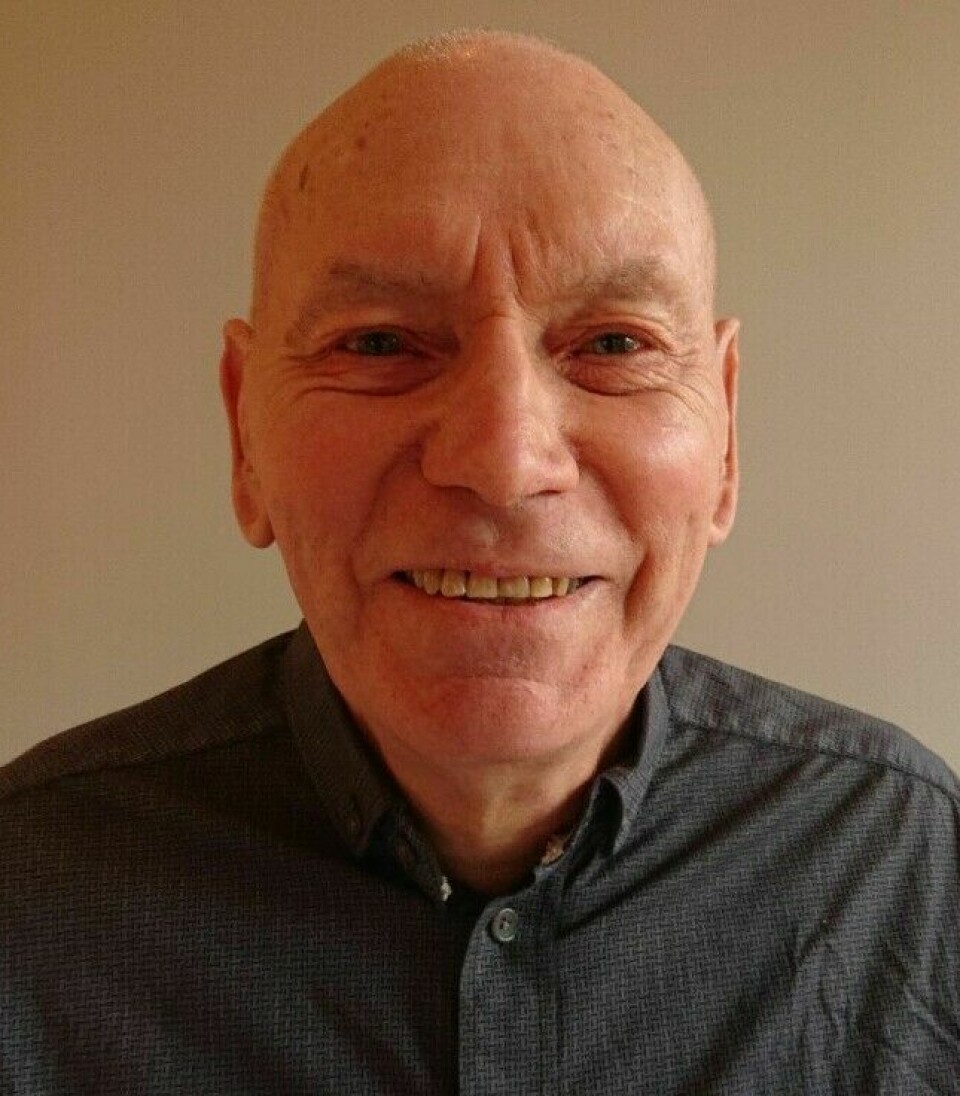
Low budgets and cutbacks mean that inmates have to spend more time locked in their cells. Fewer officers are available to carry out various activities for the inmates, according to Johansen.
“The isolation leads to more acting out from the inmates and increased use of force by the prison officers. How can we have effective conversations in that kind of situation?” he asks.
People sentenced to prison lose their freedom. The framework for their daily life is determined by others. But Johansen believes their time in prison should also lead to positive personal development.
This is where the prison officers come in. They have the most contact with the inmates. They are there to both help the inmates and maintain boundaries.
Sentenced to interact with the inmates
“In a way, we’re sentenced to interact and relate to the inmates. Prison officers should therefore play a more important role in the rehabilitation of inmates,” says Johansen.
That would require adequate staffing, a high level of professional and personal competence, time, and peace to work constructively with the inmates. Johansen believes the current education for prison officers is not good enough.
His research shows that prison officers do not tend to apply what they have learned in their training about creating healthy environments, professionalism, ethics, and morals when they enter active service.
Johansen completed a one-year prison officer education programme and was hired at Ålesund District Prison in 1977.
He worked in prisons for 38 years.
“I’m the second prison officer in Norway to take a doctorate in correctional services,” he says.
Researchers with no prison experience
One of the reasons he started his doctorate was a research conference on correctional facilities. No prison officers were present.
“Researchers with no experience of prisons were discussing what they considered to be the best correctional services based on their own academic interests,” he says.
The retired prison officer finds that the research lacked the officers' experience, perspectives from the inside, and an understanding of the relationship between inmates and staff.
“It annoys me that everyone else on the team should have a say, but not those of us who have the experience. I hope that more prison officers and other professional groups who are in direct contact with inmates now start to research their own profession,” says Johansen.
Now he is seeking a position where he can influence correctional services and the role of prison officers.
“It has been an important driving force for me,” he says.
But the path to his PhD has been long.
Achieved his PhD on the third attempt
Johansen's educational journey included completed upper secondary school and university education in pedagogy, all while working full time.
12 years into retirement, his first doctoral dissertation was rejected.
Then he heard about the Centre for Practical Knowledge at Nord University. He enrolled in their PhD programme and submitted a new thesis - which was also rejected.
"I don't like to give up," says Johansen.
Finally, in December of 2023, he was awarded his PhD.
Kåre Sigvald Fuglseth is a professor at the centre.
There, people from all types of professions can take a master's and PhD based on their experiences.
"We take take the insights of experienced professionals seriously," Fuglseth tells sciencenorway.no.
Practical research
Over the last 25 years, teachers, nurses, doctors, military personnel, actors, singers, musicians, pilots, and ambulance drivers have obtained master's or doctorate degrees. And now a prison officer has, too.
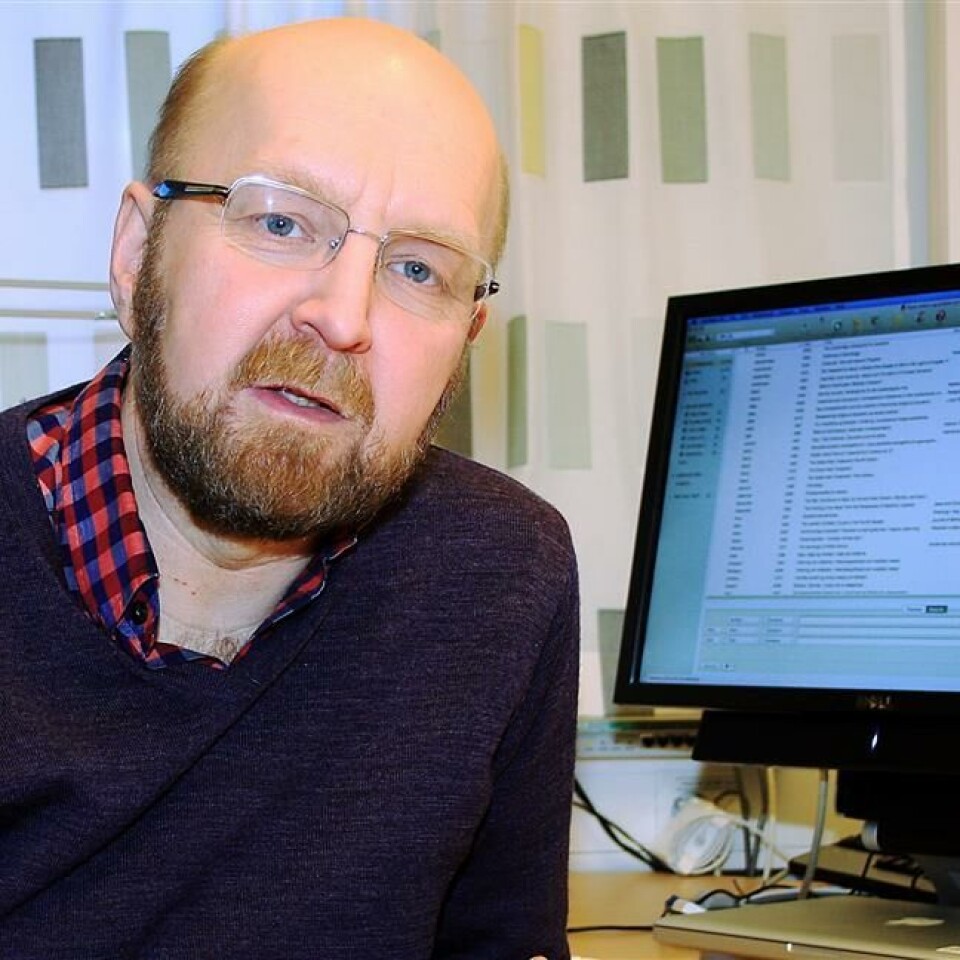
“These individuals often come from professions where they can’t get a master's or doctorate through their own vocational education. They are well acquainted with working life. In our course, we bring them in interdisciplinary dialogue,” says Fuglseth.
The students start by reviewing their own experiences. They are often unfamiliar with articulating the knowledge they possess and what is typical for their profession.
“The students also interview others in the same profession to ensure that their experiences are common to the field and to see their professional practice in a broader perspective,” he says.
The practice is then put into a theoretical framework.
“Their experiences and expertise are developed into theory that can be directly useful in both practice and the education of the profession,” he says.
“If all theory and knowledge is only developed from the top down by researchers with a purely outside perspective, we lose insights, solutions, and expertise that have been developed on the ground."
Fuglseth headed the committee that assessed Johansen's dissertation.
“We praised him for coming up with new approaches. Prison officer education and the profession are little theorised. Johansen has developed expressions such as helper and boundary-setter, as well as situationally conditioned equality. It translates well back to the profession,” he says.
Reference:
Johansen, O.L. Ideal, selvforståelse og yrkesidentitet. En studie av egne erfaringer som fengselsførstebetjent i spenningsfeltet mellom hjelp og grensesetting (Ideal, self-understanding, and professional identity. A study of personal experiences as a prison officer in the tension between help and setting boundaries), Doctoral dissertation at Nord University, 2023.
———
Translated by Ingrid P. Nuse
Read the Norwegian version of this article on forskning.no







